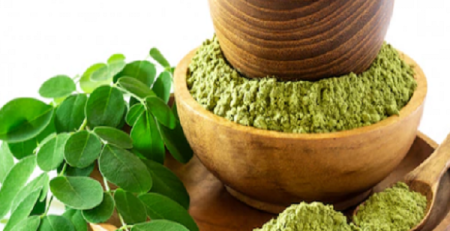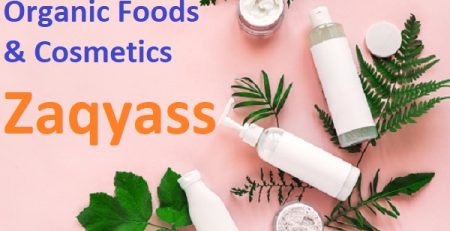Organic Cosmetic, benefits, use and much more with Business Edge Online Business
Organic cosmetic products on health benefits ? Organic Foods, Organic Cosmetics, Garments
Organic cosmetic products have gained popularity in recent years due to the perceived health benefits they offer. These products are made from natural ingredients and are free from many of the synthetic chemicals often found in conventional cosmetics. Here are some potential health benefits of using organic cosmetic products:
- Reduced Exposure to Harmful Chemicals: Organic cosmetics are formulated without the use of synthetic preservatives, parabens, phthalates, and other potentially harmful chemicals. This can help reduce your exposure to substances that may have adverse effects on your health.
Reduced Skin Sensitivity: Many people with sensitive skin find that organic cosmetics are gentler and less likely to cause irritation, redness, or allergic reactions. The absence of synthetic fragrances and dyes can be especially beneficial for those with skin sensitivities. Organic Foods, Organic Cosmetics, Garments
- Nourishing Ingredients: Organic cosmetics often contain natural ingredients like plant oils, herbal extracts, and vitamins that can provide nourishment and hydration to the skin. These ingredients may have antioxidant properties and can contribute to healthier-looking skin.
- Environmentally Friendly: Organic cosmetics are often produced with a focus on sustainability and environmentally responsible practices. This benefits not only your health but also the health of the planet by reducing the pollution and environmental impact associated with conventional cosmetics production.
- Non-GMO and Cruelty-Free: Many organic cosmetic brands use non-genetically modified (non-GMO) ingredients and are cruelty-free, meaning they do not test their products on animals. These ethical choices align with a healthier and more compassionate lifestyle.
Holistic Approach: Some organic cosmetic brands take a holistic approach to beauty, considering not only the external appearance but also the overall well-being of their customers. This can involve mindfulness in ingredient sourcing, packaging, and product design. Organic Foods, Organic Cosmetics, Garments
- Transparency and Regulations: Organic cosmetics are subject to stringent regulations and certifications that ensure the quality and safety of the products. This transparency can give consumers confidence in the products they use.
It’s important to note that individual reactions to cosmetic products can vary, and what works well for one person may not work for another. It’s advisable to perform a patch test before using a new cosmetic product, especially if you have sensitive skin or allergies. Additionally, the term “organic” can be somewhat subjective, so it’s essential to research specific brands and their ingredient lists to determine the level of organic content in their products.
Overall, organic cosmetic products can offer several potential health benefits, particularly for individuals who prioritize natural ingredients and a more holistic approach to beauty and skincare.
Cosmetic products betterment on health issues?
Cosmetic products can play a role in addressing various health issues and concerns, although it’s important to emphasize that they are not a substitute for medical treatment when needed. Here are some ways in which cosmetic products can contribute to the betterment of health:
Sun Protection: Many cosmetic products, such as sunscreens and tinted moisturizers, contain sun protection factors (SPF) that help shield the skin from harmful UV radiation. This can prevent skin damage, reduce the risk of skin cancer, and slow down premature aging. Organic Foods, Organic Cosmetics, Garments
- Acne Management: Some cosmetics, like foundations and concealers, are formulated to cover and minimize the appearance of acne and blemishes. These products can boost self-esteem and confidence for individuals dealing with skin imperfections.
- Anti-Aging Products: Anti-aging cosmetics often contain ingredients like retinol, hyaluronic acid, and antioxidants that can help reduce the appearance of fine lines and wrinkles, promoting a more youthful appearance.
- Skin Hydration: Moisturizers and hydrating serums can improve skin hydration, which is essential for maintaining healthy skin. Proper hydration can help reduce skin dryness, flakiness, and irritation.
Scar and Pigmentation Management: Some cosmetic products, such as concealer or color-correcting makeup, can be used to cover scars or uneven skin tone caused by hyperpigmentation. These products can boost self-esteem and provide a sense of well-being. Organic Foods, Organic Cosmetics, Garments
- Hair Care: Hair care products, including shampoos, conditioners, and treatments, can contribute to healthier hair by nourishing and protecting it from damage caused by environmental factors and styling practices.
- Eye Health: Eye cosmetics, such as mascara and eyeliner, can enhance the appearance of the eyes and contribute to a person’s overall sense of well-being by boosting self-confidence.
- Allergen-Free Products: For individuals with specific allergies or sensitivities, hypoallergenic cosmetics can provide a safe and effective way to enhance their appearance without triggering allergic reactions or skin irritation.
- Psychological Well-Being: The use of cosmetics can improve self-esteem, mental health, and overall well-being by enhancing one’s self-image and self-confidence.
While cosmetic products can offer benefits for various health concerns, it’s crucial to use them responsibly and choose products that are suitable for your skin type and specific needs. It’s also important to maintain a healthy skincare routine that includes proper cleansing, moisturizing, and sun protection.
In some cases, if you have underlying health issues related to your skin or appearance, it’s advisable to consult with a dermatologist or healthcare professional for a more comprehensive treatment plan. Cosmetics should complement, not replace, medical care when necessary. Organic Foods, Organic Cosmetics, Garments
skin, body, hair and face health issues with cosmetic products?
Cosmetic products, while often beneficial, can sometimes lead to skin, body, hair, and face health issues. Here are some potential concerns and how to address them:
- Skin Health Issues: a. Allergic Reactions: Some individuals may experience allergic reactions to certain ingredients in cosmetics. Common allergens include fragrances, preservatives, and dyes. To avoid this, opt for hypoallergenic products and perform patch tests. b. Acne and Breakouts: Cosmetics with pore-clogging ingredients can lead to acne and breakouts, especially if they’re not removed properly. Use non-comedogenic products and ensure thorough cleansing. c. Contact Dermatitis: Ingredients like fragrances, formaldehyde, and certain preservatives can cause contact dermatitis, resulting in redness, itching, and inflammation. Identify and avoid triggers, and consider fragrance-free options.
Body Health Issues: a. Allergic Reactions: Similar to skin, the body can also experience allergic reactions to cosmetics. Watch for signs of irritation or discomfort and discontinue use if necessary. b. Body Acne: Ingredients in body lotions or oils can lead to body acne. Choose products that are labeled as non-comedogenic and shower after sweating to prevent breakouts. Organic Foods, Organic Cosmetics, Garments
- Hair Health Issues: a. Scalp Irritation: Harsh shampoos and hair products can cause scalp irritation and dandruff. Opt for sulfate-free and gentle products and avoid overusing styling products. b. Hair Damage: Frequent heat styling, coloring, and chemically processing hair can result in hair damage. Use protective products and minimize excessive styling to maintain healthy hair.
- Face Health Issues: a. Premature Aging: Certain cosmetic products may contain harmful ingredients or fail to provide adequate sun protection, leading to premature aging. Use sunscreen and products with antioxidants to counteract this. b. Excessive Dryness or Oily Skin: Incorrect product choices can lead to imbalances in skin moisture levels. Identify your skin type (dry, oily, or combination) and choose products that cater to your specific needs. c. Uneven Skin Tone: Some cosmetics can cause or exacerbate uneven skin tone or hyperpigmentation. Use products that target your specific concerns, like products with vitamin C or niacinamide to improve skin tone.
To mitigate health issues related to cosmetic products, consider the following best practices: Organic Foods, Organic Cosmetics, Garments
- Read Labels: Pay attention to ingredient lists and choose products with fewer potentially irritating or harmful ingredients.
- Patch Testing: Perform patch tests on a small area of skin to check for allergic reactions before using a product extensively.
- Choose Appropriate Products: Select cosmetics that are suited to your skin type, concerns, and needs.
- Practice Good Hygiene: Ensure that your makeup brushes, sponges, and other applicators are clean to prevent bacterial contamination.
- Remove Makeup Thoroughly: Use proper makeup removal techniques to avoid product buildup and clogged pores.
- Rotate Products: Avoid overusing a single product or brand and allow your skin to breathe and recover.
Sun Protection: Use sunscreen daily to protect your skin from UV damage and prevent premature aging. Organic Foods, Organic Cosmetics, Garments
If you experience persistent health issues related to cosmetic products, consult a dermatologist or healthcare professional for guidance and personalized skincare recommendations.










Leave a Reply